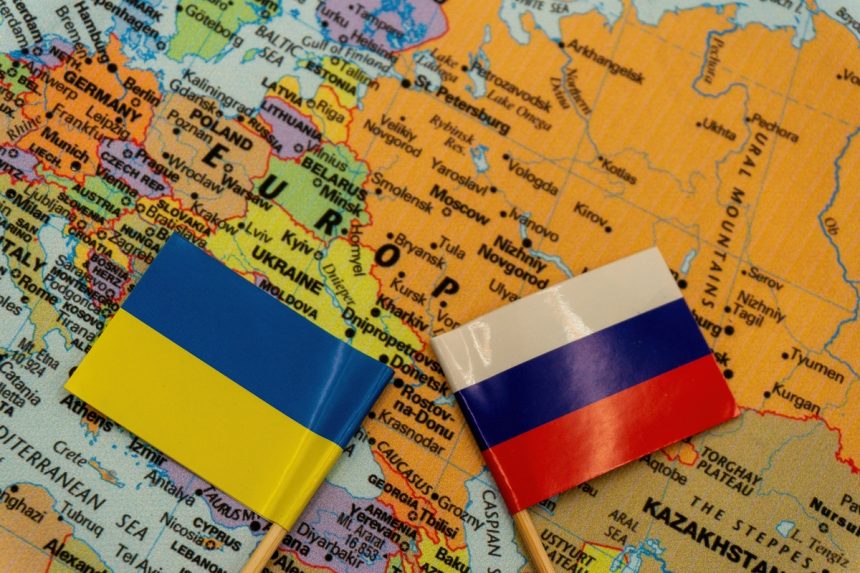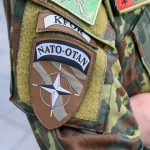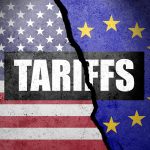As tensions escalate ahead of the upcoming U.S.-Russia summit in Alaska, European leaders and Ukraine are urgently seeking talks with U.S. President Donald Trump to safeguard their territorial and security interests. With Ukraine excluded from the summit, fears have grown over potential secret agreements that could alter national borders or undermine Ukrainian sovereignty without Kyiv’s consent.
Warnings from Europe: No Deals Without Ukraine
Germany’s Chancellor Friedrich Merz spearheaded a diplomatic push by organizing a high-stakes meeting on Wednesday, calling on Trump, U.S. Vice President JD Vance, Ukrainian President Volodymyr Zelenskyy, NATO’s Secretary General, and several European heads of state to attend. The talks are set to focus on “further options for action to put pressure on Russia,” and “preparations for possible peace negotiations and related issues of territorial claims and security,” according to Merz’s office.
European Commission President Ursula von der Leyen confirmed her participation, with leaders from the U.K., France, Finland, Italy, and Poland also joining various discussion groups.
Trump Suggests Land Swaps—But Raises Eyebrows
President Trump hinted at possible land deals ahead of his meeting with Putin. “There’ll be some land swapping going on,” he told reporters. “To the good, for the good of Ukraine. Good stuff, not bad stuff. Also, some bad stuff for both.”
However, he did not confirm attendance at Merz’s meeting, only saying, “I’m going to get everybody’s ideas” before the Alaska summit. The vague nature of his remarks only deepened concerns in Kyiv and across Europe.
Ukraine’s Red Line: No Land Swaps Without a Ceasefire
Zelenskyy and European leaders insist that any negotiations about territory must follow, not precede, a ceasefire agreement. The phrase “Nothing about Ukraine without Ukraine” has become a rallying cry. Polish Prime Minister Donald Tusk declared, “It must be obvious to Poland and our European partners — and I hope to all of NATO — that state borders cannot be changed by force.”
A “coalition of the willing” formed by France, the U.K., Germany, and Poland is also preparing to potentially deploy troops to Ukraine to enforce a future peace agreement.
Reality on the Ground: Russia Holds Strategic Territory
Russia’s 2022 illegal annexation of the Donetsk, Luhansk, Kherson, and Zaporizhzhia regions—and its continued occupation of Crimea since 2014—have reshaped Ukraine’s battlefield. Despite incomplete control over these areas, Moscow’s summer offensive has caused significant destruction, with over 12,000 civilians killed according to U.N. estimates.
NATO Secretary General Mark Rutte acknowledged these facts: “In the end, the issue of the fact that the Russians are controlling at this moment, factually, a part of Ukraine has to be on the table.” He added that while this control can be “acknowledged” de facto, it should never be “accepted in a legal sense.”
Peace, Sovereignty, and the Bigger Picture
For Zelenskyy, conceding territory without a ceasefire would be politically and morally unviable after years of bloody defense. Analysts suggest Putin’s true goal may not be land, but ensuring Ukraine never joins NATO and remains within Russia’s sphere of influence.
The Europeans agree that Ukraine must have the freedom to define its future, including choosing whether to join the EU, expanding its army, and pursuing trade without restrictions. The Trump administration has already ruled out NATO membership for Ukraine in the near term.
European Unity: Sanctions, Aid, and Military Support
After chairing a meeting of EU foreign ministers, EU foreign policy chief Kaja Kallas stressed the importance of transatlantic unity: “Transatlantic unity, support to Ukraine and pressure on Russia is how we will end this war and prevent future Russian aggression in Europe,” she wrote on social media.
The EU committed to “work on more sanctions against Russia, more military support for Ukraine and more support for Ukraine’s budgetary needs.”
With a critical summit looming between Trump and Putin, Ukraine and its European allies are making a last-minute diplomatic push to ensure they are not sidelined in decisions that could shape the future of Eastern Europe. As President Zelenskyy and European leaders insist, any deal involving Ukraine must include Ukraine.






